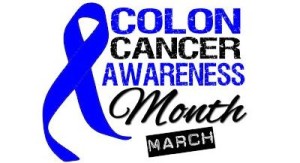
Colorectal Cancer Patients Can Benefit from Hospice Care
 Colorectal cancer is the third most common cancer diagnosis in the US.
Colorectal cancer is the third most common cancer diagnosis in the US.
As with many cancers, the earlier and smaller the growth is found, the better the likelihood of successful treatment. Risk factors for colon cancer include a family history or personal history of polyps of the colon or rectum, a personal history of ovarian, endometrium or breast cancer, a history of ulcerative colitis or Crohn disease and some hereditary conditions. Starting at age 50, the American Cancer Society recommends regular screenings for colorectal cancer. For those at increased risk, screenings should begin earlier.
Every patient and diagnosis is unique, but for most patients, treatment for colorectal cancer involves surgery, chemotherapy or radiation therapy, or both. The oncology team works closely with the patient to monitor treatment side effects and outcomes. The goal of treatment is to destroy cancer cells and prevent them from returning. If tumor growth continues or if side effects become overwhelming, cancer patients should discuss the benefits for treatment with their physicians. When a patient decides that treatment is negatively impacting quality of life, it may be time to consider focusing on quality of life instead and involving hospice care.
Hospice care can help patients feel better and enjoy time with family. Treatment can be provided in the home, an assisted living or extended care facility – wherever the patient is most comfortable and secure. Nurses are available 24/7 for consultation. With doctors, nurses, nurse aides, social workers, clergy, volunteers and other therapists available as part of the hospice team, the family and the patient receive superior care and superior service. In addition to addressing the physical needs of the patient and assuring patient comfort, the hospice team provides emotional and spiritual support, connections to needed financial and legal services and grief support to the patient and family.
Hospice is a proactive choice that enables cancer patients to remain in control of their care and enjoy quality time with family members.
Resources:
https://www.cancer.gov/types/colorectal
https://www.cancer.org/cancer/colonandrectumcancer/
Author Profile
Latest entries
 Media ReleaseJanuary 1, 2024Community Hospice to Join Ohio’s Hospice Strategic Partnership
Media ReleaseJanuary 1, 2024Community Hospice to Join Ohio’s Hospice Strategic Partnership #CelebratingLifesStoriesNovember 21, 2023Priesthood, Shelters and Hospice Care: A Life of Service for Barbara Parini
#CelebratingLifesStoriesNovember 21, 2023Priesthood, Shelters and Hospice Care: A Life of Service for Barbara Parini News and UpdatesJuly 28, 2023Ohio’s Hospice Volunteer Experiences Hospice Care as a Loved One
News and UpdatesJuly 28, 2023Ohio’s Hospice Volunteer Experiences Hospice Care as a Loved One News and UpdatesJuly 19, 2023The Not-for-Profit Difference
News and UpdatesJuly 19, 2023The Not-for-Profit Difference

